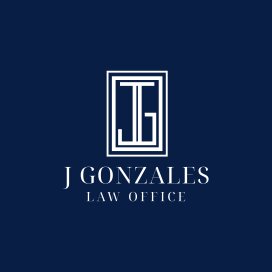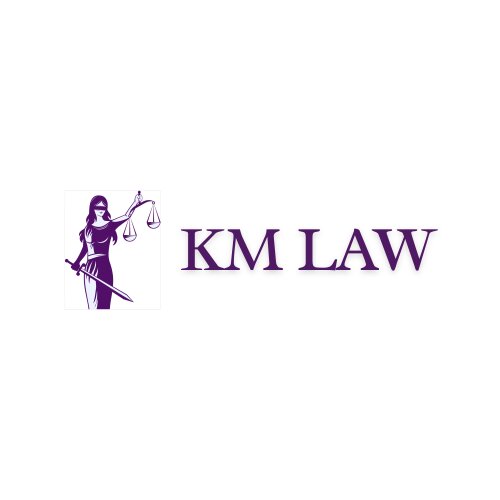Best Cyber Law, Data Privacy and Data Protection Lawyers in Philippines
Share your needs with us, get contacted by law firms.
Free. Takes 2 min.
Or refine your search by selecting a city:
List of the best lawyers in Philippines
Philippines Cyber Law, Data Privacy and Data Protection Legal Questions answered by Lawyers
Browse our 1 legal question about Cyber Law, Data Privacy and Data Protection in Philippines and read the lawyer answers, or ask your own questions for free.
- Is it possible for cyber libel if you say someone she a scammer even i have a evidence because she collecting money from us and believing that her business is a legally operated. And we found out that no paper for legalities.. We have evidence screenshot
- Cybel libel caseIs it possible for cyber libel if you say someone she a scammer, even if I have evidence, because she is collecting money from us and believes her business is a legally operated one. And we found out that no paper for legalities.. We have an evidence screenshot
-
Lawyer answer by Recososa Law Firm
Under Philippine law, particularly Article 353 in relation to Article 355 of the Revised Penal Code and Republic Act No. 10175 or the Cybercrime Prevention Act of 2012, libel may be committed online, which is called cyber libel. Libel happens...
Read full answer
About Cyber Law, Data Privacy and Data Protection Law in Philippines
In the Philippines, cyber law encompasses the legal aspects surrounding internet and digital technology use, focusing on online conduct, cybersecurity, and protecting information technology infrastructure. Data privacy and data protection laws specifically address the handling, processing, and storage of personal information to safeguard individual privacy. The primary legislation in this realm is the "Data Privacy Act of 2012" which aims to protect the privacy of individuals while ensuring the free flow of information. This legal framework establishes the principles for processing personal data and the responsibilities of entities handling such data.
Why You May Need a Lawyer
Individuals and businesses may seek legal assistance in cyber law, data privacy, and data protection for various reasons:
- Experiencing a data breach affecting personal or client data.
- Needing to comply with data privacy regulations for business operations.
- Facing legal issues due to alleged violations of cyber laws.
- Seeking advice on best practices for data protection and cybersecurity.
- Handling disputes related to intellectual property rights online.
- Navigating complex regulatory requirements for technology deployment.
- Addressing unauthorized access or cyber attacks on IT infrastructure.
Local Laws Overview
Key components of the Philippines’ approach to cyber law and data protection include:
- Data Privacy Act of 2012: Establishes the privacy rights of individuals and the duties of entities processing personal data, including sectors like government services, businesses, and telecommunications.
- Cybercrime Prevention Act of 2012: Defines online crimes such as hacking, identity theft, and cybersex, while setting penalties and laying out procedures for prosecution and enforcement.
- National Privacy Commission (NPC): A governmental body tasked with enforcing the Data Privacy Act, providing guidance, and handling complaints related to data privacy and protection.
- Intellectual Property Code: Protects digital content and intellectual property rights in the online space.
Frequently Asked Questions
What is personal data under the Data Privacy Act?
Personal data refers to any information that can identify an individual, such as names, contact information, or any other detail specific to a person.
What steps should businesses take to comply with data privacy laws?
Businesses should appoint a data protection officer, create and implement data privacy policies, secure personal data, and conduct regular privacy impact assessments.
What are the penalties for non-compliance with data privacy laws?
Penalties include fines, imprisonment for responsible officers, and possible civil and criminal liabilities depending on the severity of the breach.
How can I report a data privacy violation?
Individuals can file a complaint with the National Privacy Commission detailing the nature of the breach or violation.
What constitutes a cybercrime in the Philippines?
Cybercrimes include illegal access, data interference, system interference, cyber-squatting, cybersex, and child pornography.
Can businesses outsource data processing to third-party providers?
Yes, businesses can outsource data processing but remain responsible for ensuring that third-party providers comply with data privacy laws.
What is required for processing sensitive personal data?
Processing sensitive personal data requires obtaining the consent of the data subject, ensuring security measures, and complying with additional legal requirements.
How can individuals protect their online privacy?
Individuals can use strong passwords, enable two-factor authentication, be cautious with sharing personal information, and regularly update their software and devices.
What role does the National Privacy Commission play?
The NPC oversees the compliance of entities with the Data Privacy Act, provides advisory, supports policy formulation, and adjudicates complaints.
Are there specific guidelines for online payment systems?
Yes, online payment systems must comply with data privacy regulations and implement stringent security measures to protect personal and financial information.
Additional Resources
For further assistance and information, consider consulting the following resources:
- National Privacy Commission: Provides guidance, resources, and support on data privacy matters.
- Department of Information and Communications Technology (DICT): Offers public consultations and advice on ICT-related issues.
- Philippine Bar Association: For referrals to lawyers specializing in cyber law and data privacy.
- Legal Online Platforms: Websites providing legal information and lawyer consultations.
Next Steps
If you require legal assistance in cyber law, data privacy, and data protection, consider taking the following steps:
- Identify the specific legal area you need help with (e.g., compliance, litigation, advisory).
- Gather relevant documentation and evidence related to your legal concern.
- Seek recommendations for reputable lawyers specializing in cyber law and data privacy from bar associations or online legal platforms.
- Schedule consultations to discuss your case and explore potential legal strategies.
- Ensure the lawyer you choose is well-versed in both national and international data protection laws, as these can impact global operations and personal rights.
Lawzana helps you find the best lawyers and law firms in Philippines through a curated and pre-screened list of qualified legal professionals. Our platform offers rankings and detailed profiles of attorneys and law firms, allowing you to compare based on practice areas, including Cyber Law, Data Privacy and Data Protection, experience, and client feedback.
Each profile includes a description of the firm's areas of practice, client reviews, team members and partners, year of establishment, spoken languages, office locations, contact information, social media presence, and any published articles or resources. Most firms on our platform speak English and are experienced in both local and international legal matters.
Get a quote from top-rated law firms in Philippines — quickly, securely, and without unnecessary hassle.
Disclaimer:
The information provided on this page is for general informational purposes only and does not constitute legal advice. While we strive to ensure the accuracy and relevance of the content, legal information may change over time, and interpretations of the law can vary. You should always consult with a qualified legal professional for advice specific to your situation.
We disclaim all liability for actions taken or not taken based on the content of this page. If you believe any information is incorrect or outdated, please contact us, and we will review and update it where appropriate.
Browse cyber law, data privacy and data protection law firms by city in Philippines
Refine your search by selecting a city.
















